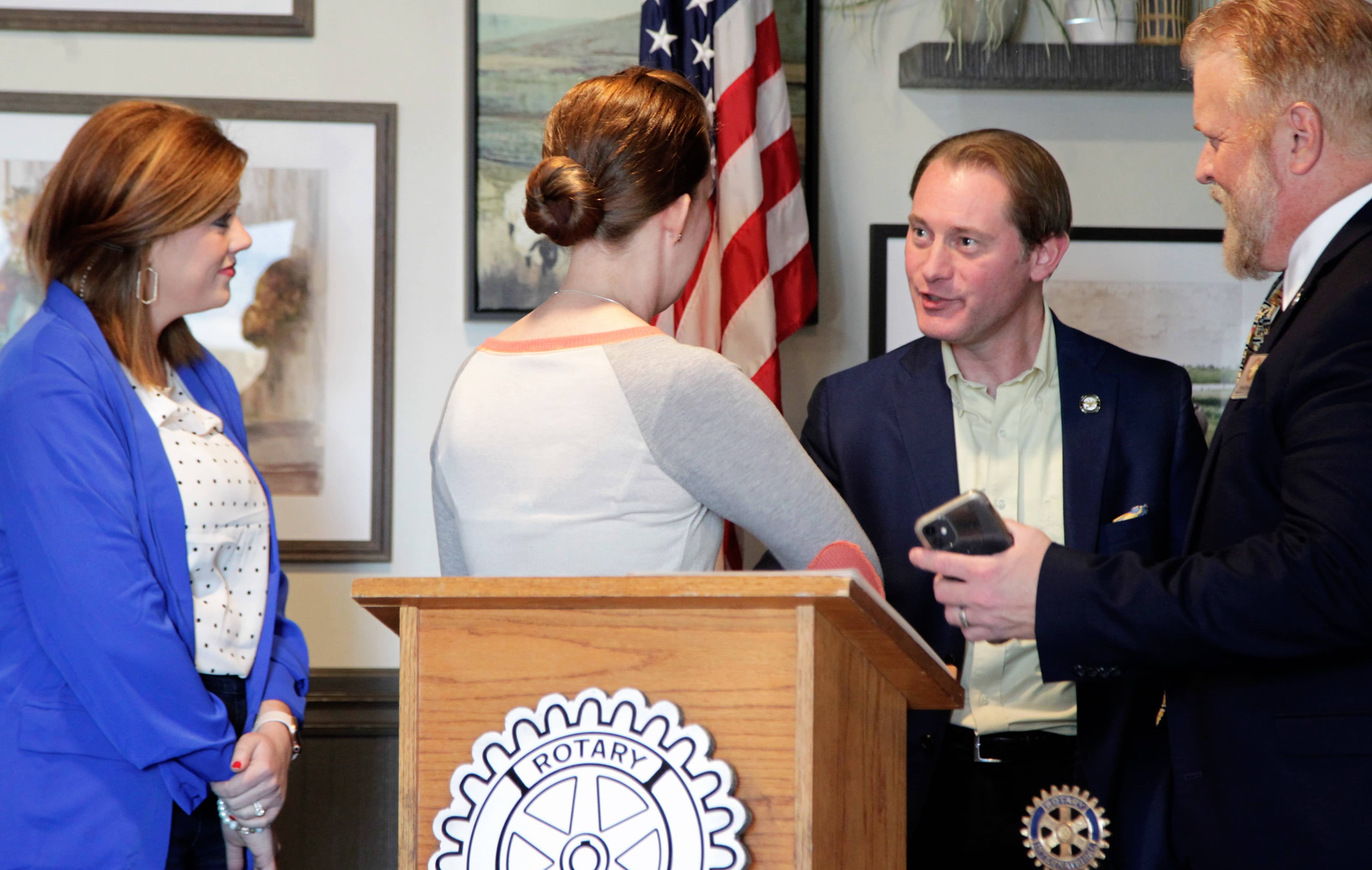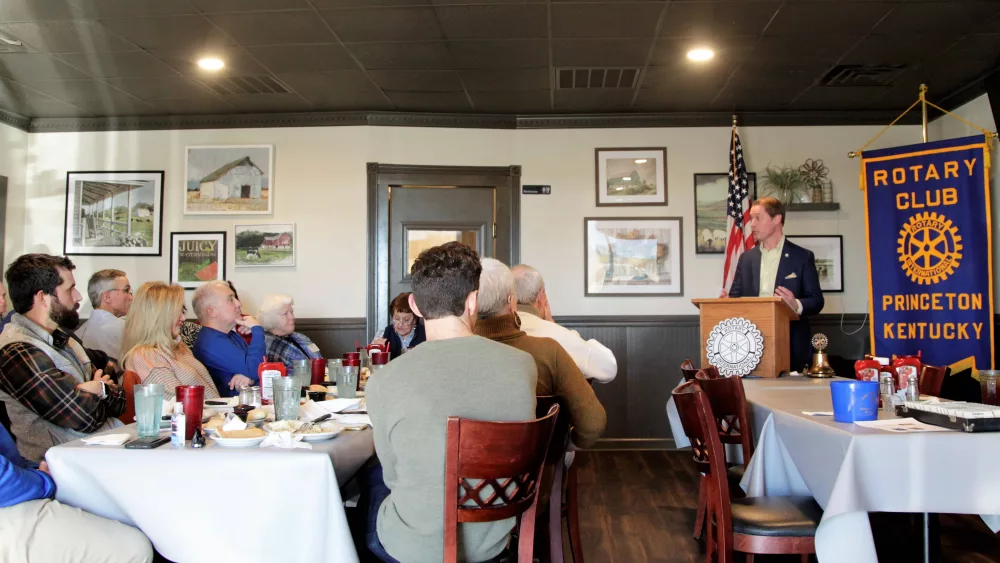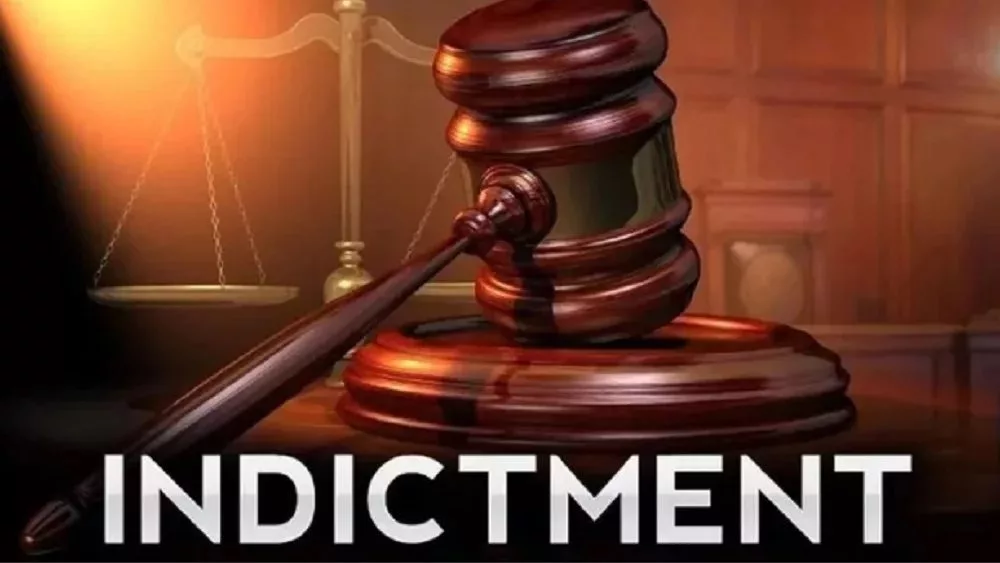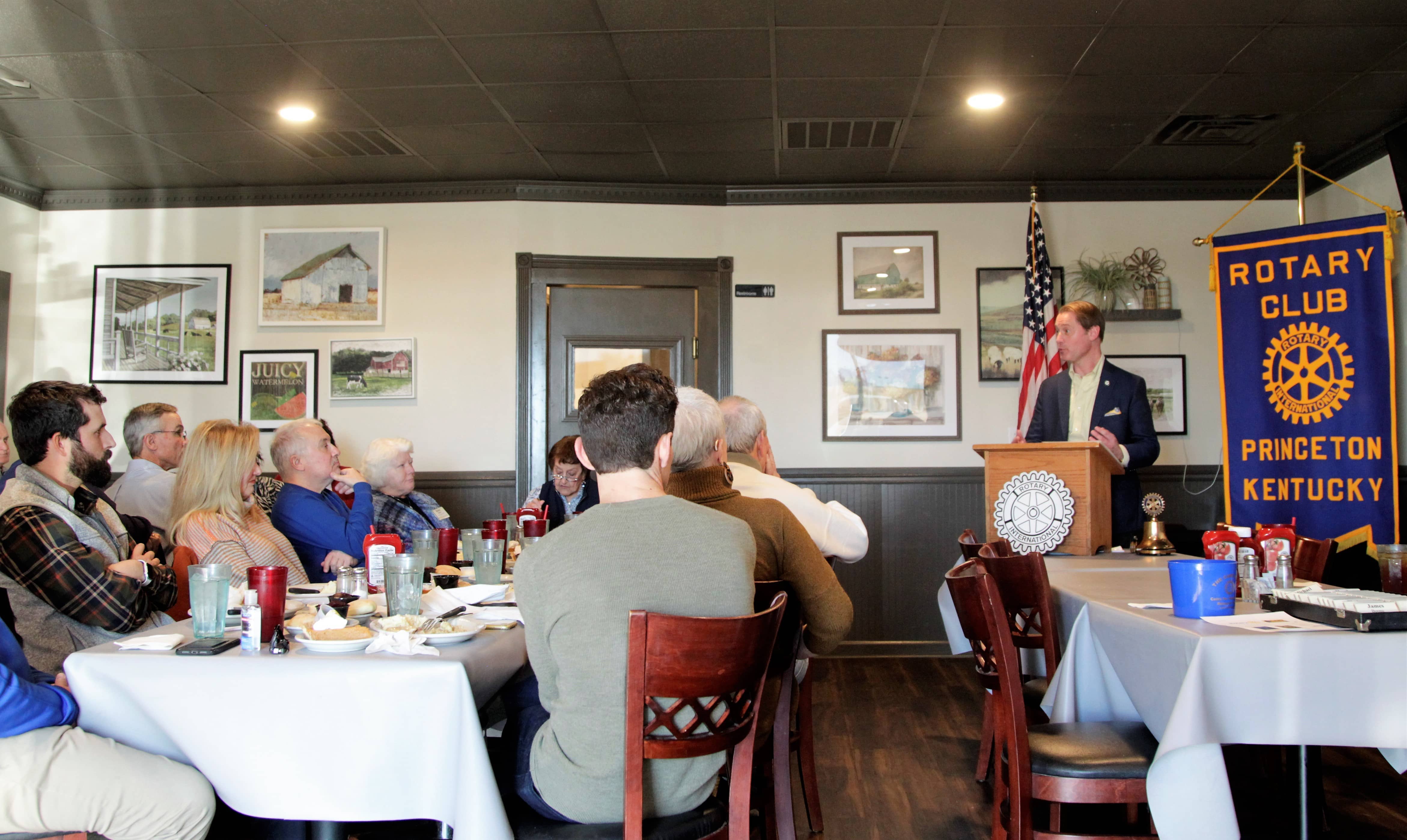
In what proved to be an intimate setting in the back tucked corner of the Majestic House in Princeton, Secretary of State Michael Adams spent Tuesday afternoon unveiling all the nuances of landmark House Bill 574 — which this past April brought about sweeping, bi-partisan regulation changes to voting protocols in Kentucky.
Deeply rooted in what he called a “successful” and “clean” election process for the state during 2020, Adams said the goal in getting HB 574 passed and signed by Governor Andy Beshear came from a fair mixture of voting practices implemented by the state during a pandemic.
In what has been termed the most comprehensive voting plan for Kentucky since 1891, Adams, Beshear and the General Assembly agreed on the following laws:
— Using official, state-issued identification to both register and vote
— Creating three days of early in-person voting, including Saturday, with no work excuse required
— Empowering state election officials to remove both non-resident and deceased voters from voting rolls
— Moving toward universal paper ballots statewide in conjunction with electronic machines
— Maintaining an online voting portal for fully transparent absentee balloting for both the voter and election official, alike
— Permitting counties to establish voting centers, keeping precincts, or allowing a hybrid of centers and precincts
— Prohibiting and penalizing ballot harvesting
— And retaining the cure process, so absentee voters with changed signatures can prove their identity and not get disenfranchised through bureaucracy
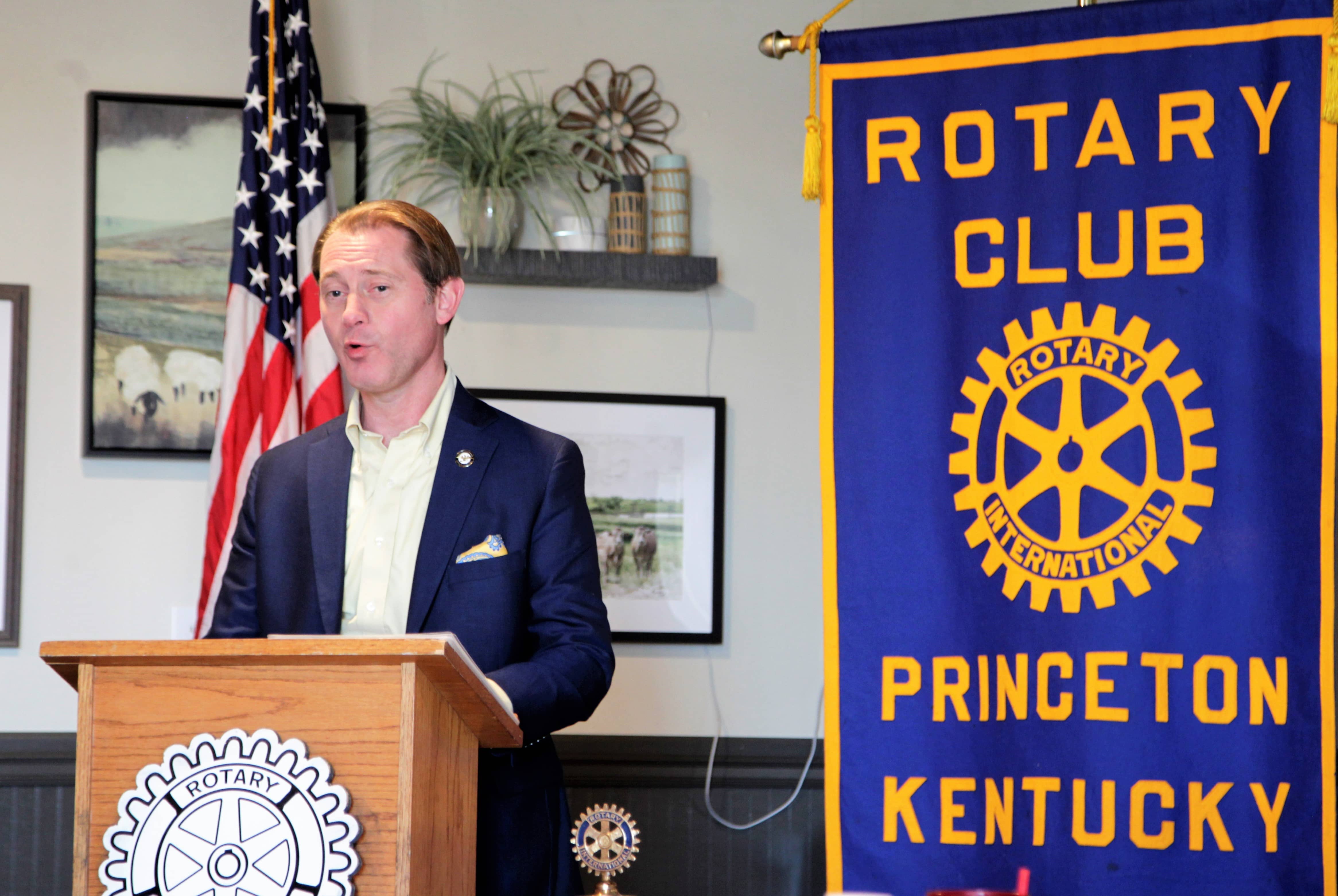
A west Kentucky native and longtime Republican who grew up in the McCracken County school system, Adams noted the pandemic proved to be a tough crucible for Kentucky’s voter laws — but that precincts across the state flourished and passed the test, despite dismal turnouts for polling station volunteers.
Adams said only one person in more than 3,000,000 ballots tried to vote twice, and the voter was apprehended in Daviess County.
Furthermore, he noted the changes to voting laws helped create better accessibility for people across all sides of the aisle — Republican, Democrat and otherwise affiliated, which Adams said comprises of nearly 10 percent of the voting populous.
It also, coincidentally, helped his working-class parents — haven’t always had a chance to vote with regularity.
Having just one day to vote, Adams said, has no basis in any real meaning or purpose.
During the 2018 election, Adams noted scores of absentee ballots were simply thrown in the garbage because of perceptions in changed and differing signatures.
Now, counties are responsible for checking in with those voters for a two-fold reason: to see if it’s the voter’s ballot, and to perhaps locate and prosecute identity theft and voter fraud.
Adams also noted that “volunteerism,” especially from his demographic, has been extremely down across the state — and that the need for poll workers is as dire as ever.
It’s another reason some of these voting changes will be put to the test once again in 2022 and beyond.
Adams localized even further, when he noted that his campaign trail included several trips to Princeton’s popular pizza palace Pagliai’s, and he said groups like the Princeton Rotary Club can affect positive change.
Full Adams presentation:
